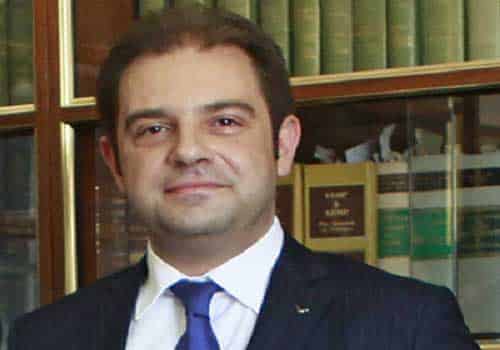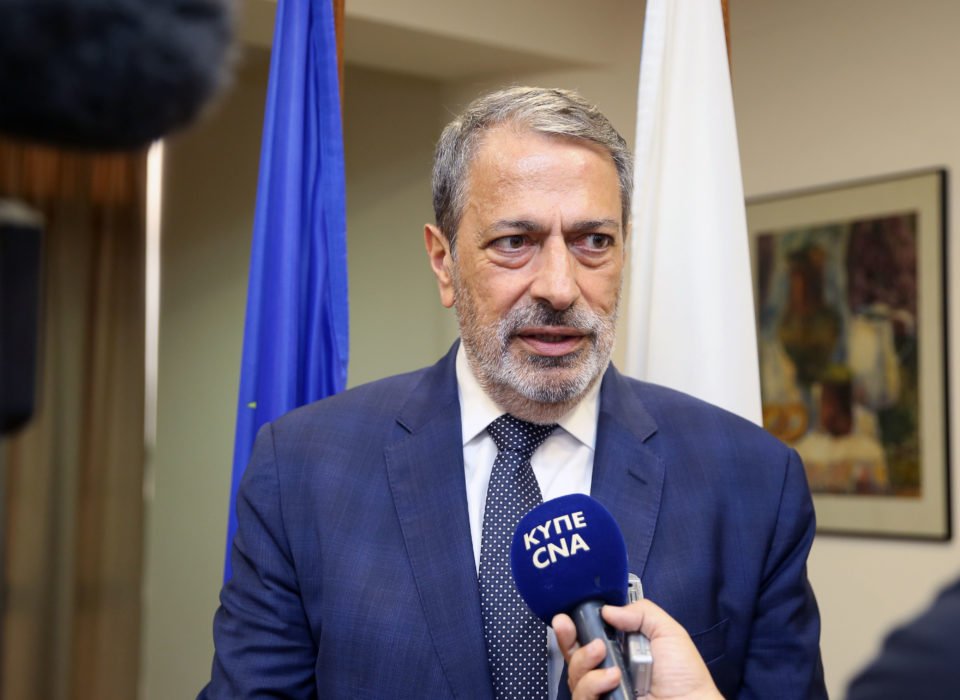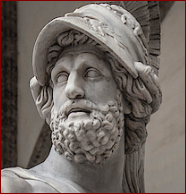AS IF HAVING to deal with the unrelenting attacks of Odysseas was not bad enough, attorney-general Giorgos Savvides is also having to cope with old cases, pre-dating his appointment, that were covered up and have resurfaced to make his life hell.
His handling of these cases has been a transparent attempt to patch things up rather than to assist in the truth coming out. On Wednesday, during the court inquiry into the death of national guardsman Thanasis Nicolaou in 2005, the lawyer appointed to investigate the case, Savvas Matsas, accused the AG of assisting the cover-up.
Matsas told Limassol court that he had been pulled from the investigation by the AG (on the grounds he had leaked details of his findings to the media) because “they understood I would not do whatever they want.” He added that the final report was “so poor and so biased, it proves only one thing – there is an agreement to cover up this case.”
This is the third inquiry into the very suspicious circumstances of the death of Thanasis in which all sides should be cooperating to establish the causes of death. Nobody is being prosecuted, yet the AG’s office has been treating the inquiry as a trial, resorting to hostile questioning of witnesses, trying to discredit them, almost as if it does not want the court to reach any conclusion.
Even the judge could not hide her exasperation on Wednesday, telling the AG’s representative, after exchanging angry words with her, “the stance of the attorney general has been obvious throughout the entire process.”
THE OTHER cover-up he has had to deal with dated back to 2012, when 17-year-old Andreas Loizou was hit by a car and killed while riding his motorbike in Limassol.
The youth was overtaken by a car driven by a female, who had not seen an oncoming car, the driver of which swerved to avoid her and hit Loizou. The other youth on the motorbike escaped with some injuries. The female driver, who caused the fatal accident did not stop, and was never found by police.
There has been rife speculation that she is related to a very senior politician, which may explain why she was never identified and brought in for questioning. A host of bizarre goings-on have recently been reported. The police announcements about the crash were removed from the police website, and confusion surrounds what the six people at the scene, apart from Loizou (there were another four youths on another two motorbikes) told police.
Although the man who had crashed with the motorbike had said the overtaking car was an “Audi, A3 or A4, light-coloured, convertible” police had made his testimony disappear insisting that the car was not an Audi. How did they know?
When the case was re-opened, two of the youths found that the statements they gave in 2012 included comments they had never made.
In an interview given by the youth riding with Loizou on the fateful night to Reporter website in January he said that his 2012 statement included something he had not told the police. In his statement he supposedly said “I am certain it was not an Audi.” He told Reporter, “I had said no such thing.”
He also mentioned in the statement of his friend who was riding another motorbike, the friend supposedly said the overtaking car was “Beetle type.” He had said no such thing to police. In fact, the original statement he gave to police on September 2, 2012 had disappeared from the police file and he had to give another on September 8.
A few days later, the youths were called to the police station to help in the car identification, but the police showed them every make of car except an Audi, and no convertibles said the youth in the interview. “I remember asking them why do you not show us an Audi and they told us, because it is not an Audi,” he said.
A NEW investigation of the cover-up, under deputy police chief Themistos Arnaoutis found evidence that criminal offences had been committed by seven police officers involved in the investigation of the case.
Under pressure to do something, the AG announced on Thursday that one of the seven officers would face criminal charges, because, while knowing what he had to do “he consciously omitted to do so.” The other six would not be charged, because they did not deliberately neglect their duty. The deputy chief found evidence of criminal offences, but the AG decided these were not committed deliberately so they were innocent.
The tampering with witness statements, the disappearance of a witness statement, the deleting of police press releases, the leaking of misleading information were all done by one officer? This seems suspiciously like a case of scapegoating by the AG.
If you put seven officers in the dock, all determined to avoid prison, there is a danger of the truth coming out.
FORMER police chief Andreas Kyriakou speculated on ‘X’ that there might be no trial. He tweeted: “In a court procedure, if there is a guilty plea, the member of the police apart from the sentence will also lose his job. In the event of a not guilty plea, there would be a trial and facts will be heard, something that some people do not want. Therefore, there will be no trial and the public interest will prevail.” A cop with a sense of humour is a rare species that must be protected in the public interest.

Akan Kursat
THERE was another case this week, which will have added to the cumulative embarrassment of Savvides, even though he carried none of the blame.
He was just dropped in it by our incompetent state services, which had charged Turkish Cypriot lawyer Akan Kursat in connection with selling Greek Cypriot property in the north in 2006 and had a European arrest warrant issued against him in 2007. In 2014 they renewed the wanted man’s Cyprus Republic passport.
Everyone was caught by surprise when the Italian authorities executed the arrest warrant last December and initiated extradition proceedings against him. Cypriot police officers brought him back to Kyproulla for trial, he appeared in court and the trial was set to begin last Thursday. It did not, the AG suspending the prosecution because the key prosecution witness – a Briton – had passed away in the meantime.
A DECISION issued by the Nicosia district court on February 13 could also have been acted on by the AG as in the ruling of Judge A. David it is clearly suggested that a host of criminal offences had been committed, including the forging of a signature on a will.
The case involved a Dr Stelios Eliades, who had been residing in Geneva with his partner and was diagnosed with Lewy body dementia. He returned to Cyprus in 2007 and passed away six years later. Before arriving here he had prepared a will leaving most of his assets to his gay, French partner. This will had been challenged by the doctor’s Cypriot relatives, who presented other wills to the court they claimed he had subsequently signed.
The judge refused to accept their validity, not only because they were, allegedly, taken by devious means, but because the second one could not have been signed by Eliades, who was very ill at the time. A police expert told the court his “strong conviction was that the signature was not that of Eliades,” on the will allegedly signed on 24/4/2009.
Should the people who put together this will – a prominent lawyer, a prominent cardiologist – which was supposedly witnessed by a prominent doctor be charged for forgery? Perhaps it is not in the public interest to charge prominent members of the Nicosia elite. And the AG has enough on his plate.
Behind the other will (25/5/2007) the judge ruled invalid, was a retired supreme court judge, another distinguished member of the capital’s crème de la crème, whose greed is what really sets them apart from their inferiors.
WE HAVE NEWS on the tashinopitta front. Friends had been singing the praises of the tashinopitta made by the Limassol-based bakery Sigma, so I felt duty-bound to try one. I must admit that it was probably the best one I have tried so far. It was the perfect combination of crispness and moistness. It was a bit more expensive than usual, selling for €2.40, but worth it.
I also came across an innovative tashinopitta at the traditional bakery Elena, which has radically changed the shape of the traditional sweet. It is done like a Greek tsoureki and because of that it has the texture of a cake, with no crispness on the outside. Still worth a mention as an experimental tashinopitta.







Click here to change your cookie preferences